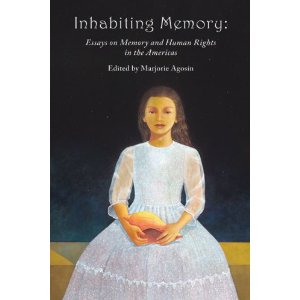Update: the new issue of JewishFiction.net is up! (9/2/15, 3:00 Central)
When Roderick Clark phoned me up this afternoon, he told me that he had some good news and some bad news. Rod is the editor of Rosebud (“The Biggest Little Magazine in the World”), and while we have developed a warm professional relationship over the years, we had previously only spoken by phone when he wanted to publish one of my translations. So I suspected that the news couldn’t be so bad; and almost certainly had something to do with the essay I had sent in a while back for the X. J. Kennedy Award for Non-Fiction.
And indeed, the bad news was that I didn’t win the top prize, but on the other hand (good news!) it might have been a really close call: it was, if not “the winner,” one of five finalists (out of hundreds of submissions) and as such still worthy of a modest cash award and publication. It will appear, with the other runners-up and winner, in issue #60 which is due out by the end of the year.
Naturally, I felt rather satisfied with that mixed report, which was essentially music to my ears. Sure, to win the top prize and the extra cash would have been fabulous, but what are the odds of that? When I put the essay in the mail I did believe that, at the least, it was not un-deserving of an award, perhaps even the first. But such competitions are inevitably tough, extremely tough, so I can only be immensely pleased with this result. And to think I almost hadn’t entered!
“Attractions of Barbarity” is the essay’s title, anyway. It relates the central narrative of my yet unpublished book-length memoir Journeys and Digressions and is based on my 2005 return trip to Argentina. I was invited, specifically, to read from the Spanish-language translation of my historical/literary novella A Bride Called Freedom (2003) at a conference on the historical figures of Eduarda and her brother Lucio Mansilla. Lucio is a character in my novella, and at the time I was also working on the translation of a novel by María Rosa Lojo (Passionate Nomads, 2011) in which – escaped from a questionable Paradise and transported to 1990s-era Buenos Aires – he is the star. Readers of Rosebud may remember Mansilla as “The Gentleman in the Willow” (issue #51), a short excerpt from that novel.
Mansilla’s primary claim to fame is having written a seminal account of his 1870 excursion into the lands of the Ranquel Indians, with the ostensible purpose of achieving a treaty between those Indians and the Argentine government. But the book became much more than a frontier military commander’s report and travelogue. Its lasting value, aside from the writing itself, lies in the remarkably comprehensive and comprehending view he brought us of those people, whom nearly everyone else dismissed as savages. Mansilla, instead, turns the whole concept of civilization and barbarity on its head, revealing to us the humanity of a people who, like our own Indians up here in the North, were being hounded into near extinction.
![images[6]](https://brettalansanders.wordpress.com/wp-content/uploads/2015/09/images6.jpg?w=500) The immediate impetus for this long-contemplated essay, the turn of fate that compelled me at last to get to it, was a chance mass mailing from editor Clark reminding contributors and subscribers like me of the contest deadline and encouraging further submissions. What I had to do, then, was extract from the larger memoir the parts that spoke most directly to the particular literary journey at center and re-mold them into a more compressed format. Then trim it down to size; and while doing so preserve the most significant and memorable evidences of the original’s deceptively simple, leisurely, digressive style – which deliberately reflects Mansilla’s own epistolary style.
The immediate impetus for this long-contemplated essay, the turn of fate that compelled me at last to get to it, was a chance mass mailing from editor Clark reminding contributors and subscribers like me of the contest deadline and encouraging further submissions. What I had to do, then, was extract from the larger memoir the parts that spoke most directly to the particular literary journey at center and re-mold them into a more compressed format. Then trim it down to size; and while doing so preserve the most significant and memorable evidences of the original’s deceptively simple, leisurely, digressive style – which deliberately reflects Mansilla’s own epistolary style.
I owe some thanks to my friends from the Southern Indiana Writers – I am a recent new member of the group – for helpful criticism and suggestions after a read-through of the first draft.
A reminder, too, for those who may be interested: excerpts from both A Bride Called Freedom and Passionate Nomads can be found on this Website under Publishing History.
#
In other news, a couple of recent publications and one forthcoming:
1) In the Spring 2015 edition of the Cosumnes River Journal (Vol. 9), a single prose poem/mini-fiction from María Rosa’s Stories from Heaven, as yet unpublished in English translation. This modest but attractive journal from Cosumnes River College (part of the Los Rios Community College District) in Sacramento, California offers a nice range of writing and art from the undergraduate level to professional work by the likes of American Book Award winner Maria Espinosa.
2) A set of poems from that same collection in The Cincinnati Review’s incredible Summer 2015 edition. Thanks to an NEA grant, the editors have been able to concentrate on longer forms of fiction and poetry as well as additional translation. In this case that translates to more than 300 pages of remarkable fiction, nonfiction, and poetry. Regular features include a selection of work (in color) by an artist, a short music feature (a previous contributor’s poetry set to music), and book reviews. In an original twist, one book (This Is the Water, by Yannick Murphy) is reviewed, from different angles, by three separate reviewers.
3) And finally, forthcoming at almost any moment online at JewishFiction.net, a somewhat abbreviated version of my translation of María Gabriela Mizraje’s rich, multi-layered story “Land of Promise.” Set primarily in the years between the two world wars, it is the generally upbeat story of a Turkish-immigrant family in a poor working-class neighborhood of Buenos Aires. In particular it chronicles the relationship between the charming and hardworking patriarch, Narciso, a shoemender by trade and a champion swimmer in the Old World, and his son, Elías, who works in his father’s shop, plays the piano, and loves to swim through the air (as a parachutist) more than water. As abridged, we do have Elías dreaming of flight, while his father introduces him to the river, but we lose the longer stream-of-consciousness account of his actual jump from a plane. The primary story is there, however, and well worth the read. If you are up for a beautifully nuanced tale, as universal as any of our own American immigration stories, I urge you to visit the site. (I’ll plan to add an update when it’s up.)




![300px-Bonus_marchers_05510_2004_001_a[1] Veterans Occupy Washington, 1932](https://brettalansanders.wordpress.com/wp-content/uploads/2012/10/300px-bonus_marchers_05510_2004_001_a1.gif?w=500)
![220px-Bonus_army_on_Capitol_lawn_cph.3a00515[1] Washington Occupation 1932](https://brettalansanders.wordpress.com/wp-content/uploads/2012/10/220px-bonus_army_on_capitol_lawn_cph-3a0051511.jpg?w=500)
![250px-Evictbonusarmy[1] "Hooverville" shantytowns burned by MacArthurs's army](https://brettalansanders.wordpress.com/wp-content/uploads/2012/10/250px-evictbonusarmy1.jpg?w=500)
![circusposter47_2[1] Vintage Circus Poster](https://brettalansanders.wordpress.com/wp-content/uploads/2012/10/circusposter47_21.jpg?w=500&h=400)
![Snapz-Pro-XScreenSnapz1220[1] New Orleans Ninth District](https://brettalansanders.wordpress.com/wp-content/uploads/2012/10/snapz-pro-xscreensnapz12201.png?w=500)
![Snapz-Pro-XScreenSnapz1221[1] Unrepaired home in Ninth Ward](https://brettalansanders.wordpress.com/wp-content/uploads/2012/10/snapz-pro-xscreensnapz12211.png?w=500)

